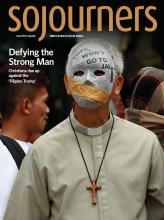THE CONTROVERSIAL Jan. 29 attack by U.S. forces on a rural township in Yemen exemplifies the failed U.S. policy in the region.
In the first military raid carried out by the Trump administration, one U.S. soldier and at least 25 civilians were killed in the attack on the village of al-Ghayil in central Yemen, including nine children under the age of 13. Among these was 8-year-old Nawar al-Awlaki, an American citizen, who was shot in her family’s house. Other civilians killed included visitors whose family has been active in U.N.-mediated de-escalation committees, working to quell violence in the region.
Some leaders of al Qaeda in the Arab Peninsula (AQAP) also lived in al-Ghayil. AQAP has taken advantage of Yemen’s multi-sided civil war to find refuge in remote areas. AQAP maintains an uneasy relationship with local tribes, many of whom abhor al Qaeda’s violent excesses and reactionary interpretation of Islam but respect AQAP’s ability to fight common enemies.
When Navy SEALs found themselves under fire, they called in airstrikes. The barrage hit houses where families slept, killing people and livestock. Navy SEAL William “Ryan” Owens was also killed.
President Trump initially blamed his own generals and former President Obama for the botched raid. Then, in his first address to Congress, Trump pivoted, describing it as “a highly successful raid that generated large amounts of vital intelligence.” Owen’s widow was present; Trump referred to her multiple times in his address. Owen’s father refused to meet with the president and asked for an investigation into his son’s death.
Read the Full Article

